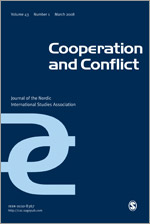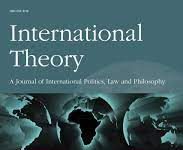Abjection, materiality and ontological security: A study of the unfinished Church of Christ the Saviour in Pristina
Abstract
Ontological security scholarship in International Relations (IR) has predominantly focused on the importance of social environments for the healthy sense of self. However, material environments can also provide an important source of ontological security. In my previous work I have argued that to assume this role of ‘ontic spaces’ material environments need to be discursively linked to states’ self-identity either through projection or introjection.
In this article, I draw on the work of Julia Kristeva to argue that ontic spaces can also come about through abjection or the rejection of a material environment from the narrative of the self. I illustrate this theoretical point in the case study of the Serbian Orthodox Church of Christ the Saviour in Pristina.
Its construction began in 1992 during the rule of Slobodan Milošević but was never finished due to the Kosovo war in 1998/9. Over the years, as all proposed changes are considered to be a threat to a healthy sense of self of either Serbs or Albanians, the building has been turned into an abjected ontic space, an ambiguous symbol undermining the self/other and victim/oppressor boundaries and as such both repels and attracts, threatens and protects.
First Published November 5, 2020




